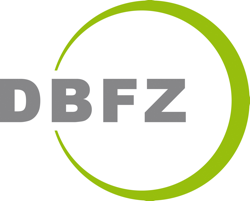International Knowledge and Technology Transfer
Despite the increase in solar and wind power in the global primary energy supply, biomass remains the most important renewable energy source in the world, according to IEA. However, its potential is limited. It is therefore essential that biomass is used in a socially, ecologically and economically sustainable manner in the future, taking into account the nexus of food security, energy, climate, environment and water.
In the course of the transformation of the fossil-based economy towards a bioeconomy and climate-neutral society, which affects all countries, the international transfer of knowledge on the material and energetic use of biomass is increasingly important. DBFZ has many years of experience in the use of bioenergy and has found solutions to specific technical challenges for many biomass applications worldwide. Against this background, DBFZ will continue to develop and implement concepts and demonstration projects to strengthen these activities at an international level.
The transfer of technical know-how and knowledge will support the assessment of the possibilities and limits of sustainable biomass use, the development of biomass and bioeconomy strategies and the establishment of research infrastructure worldwide.
International projects
Since its foundation in 2008, DBFZ has left traces on all continents. Although most projects have been implemented in Germany, DBFZ has realized studies and projects in a variety of countries all over the globe (see map). Over the years, DBFZ has established strong networks for research co-operation and exchange of doctoral students and scientists (e.g. Brazil, South Africa, China, Japan). In addition, DBFZ has carried out short-term studies, e.g. on biomass potentials, the use of various raw materials for bioenergy supply or pre-feasibility studies for bioenergy pilot plants (e.g. in the Caribbean, Colombia, Ghana, Togo, Vietnam). Furthermore, a targeted research infrastructure has been established in some countries (Ethiopia, Togo) in order to promote a self-determined biomass research in those regions. DBFZ's most extensive project to date has been implemented in Ethiopia. A pilot project has demonstrated how bioenergy technologies can be used to improve the soil and contribute to food security. The transfer of knowledge to the national education and training system also played an important role.
International Memberships
DBFZ is active member in a variety of international boards and committees as, for instance, the International Organization for Standardization (ISO, TC 238 and TC 255) or the Committee on the Sustainability of Biofuels and Biofluids.
Another important organization in which the DBFZ is actively involved is the International Energy Agency (IEA) Bioenergy. Five DBFZ scientists are currently the national (German) task leaders of various working groups in the IEA Bioenergy. As part of these committees, the DBFZ has published a series of reports on various aspects of bioenergy (e.g. biogas, pellets, biowaste). The reports are free of charge and can be downloaded here.
Expertise and Competencies
In cooperation with international partners, DBFZ has conducted pre-feasibility studies and bioenergy projects in many countries around the world. Different stakeholders from politics, administration and science as well as business partners have been incorporated into these projects. Whether the aim is to improve energy efficiency, reduce greenhouse gas emissions or develop concepts for the use of agricultural residues and organic waste, DBFZ has a high level expertise in biomass topics worldwide. Research in the field of using biomass along the entire value chain and issues relating to the bioeconomy are also increasingly coming into focus. The project results are published and also presented at conferences and workshops.
In order to learn about the state-of-the-art and inform themselves about research results, guest scientists (Post-Doc) and PhD students are invited to do their research at DBFZ and transfer knowledge to their countries of origin. Frequent topics that international researchers focus on during their stay at DBFZ are aspects of the material and energetic use of biomass, such as
- Biomass potential analyses;
- Bioenergy and bioeconomy in the future;
- Biogas and anaerobic processes;
- Biofuels and biorefinery processes;
- Combustion, heating and cookstove technologies;
- Catalytic exhaust gas purification;
- Material use of biomass.
In addition to technical excellence, DBFZ guarantees a high level of intercultural competence, communication skills for a variety of languages (e.g. Amharig, Bulgarian, English, French, Indonesian, Persian, Portuguese, Russian, Spanish, Turkish, Twi, Ukrainian, etc.) and many years of experience in an international context.

